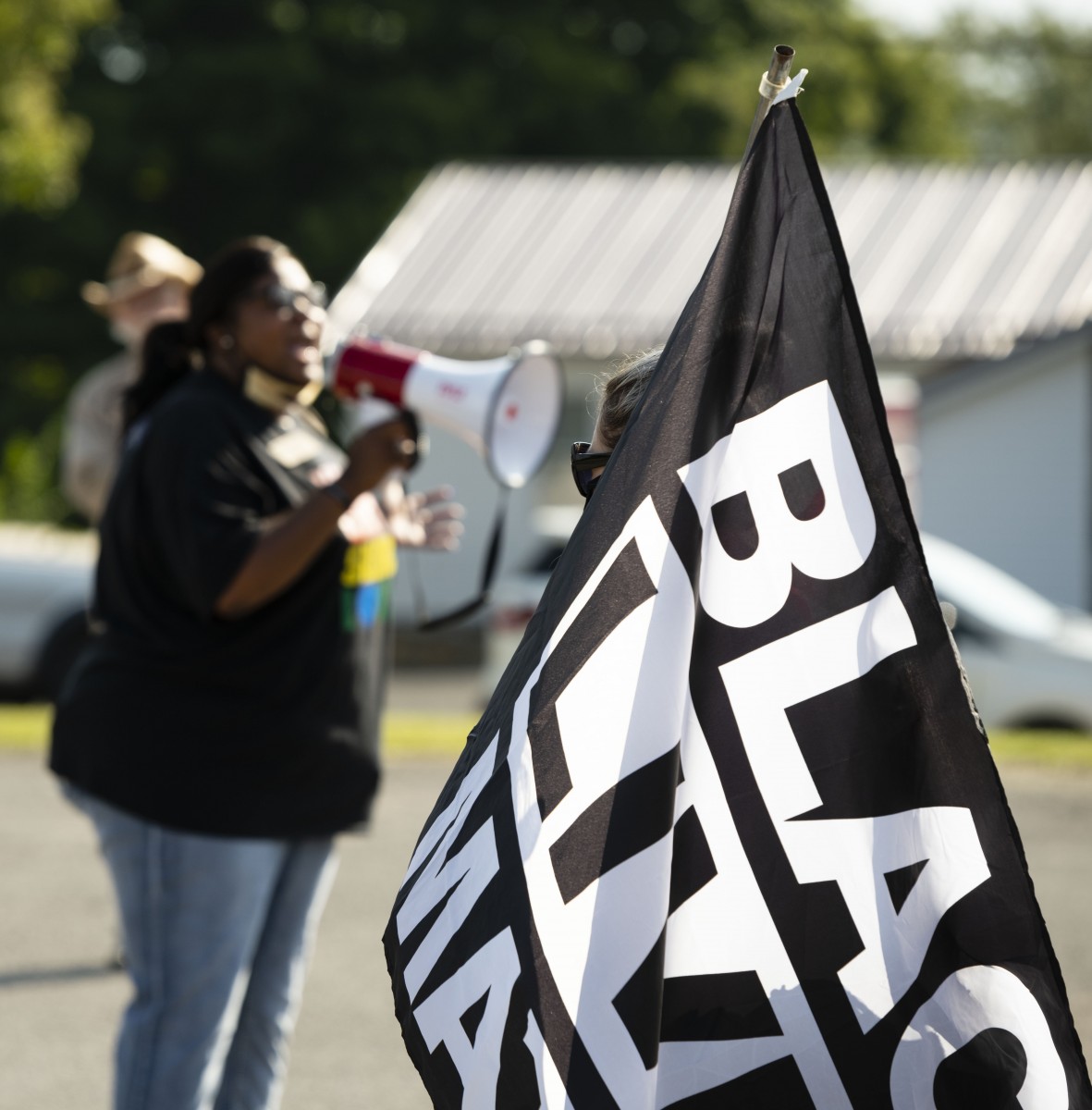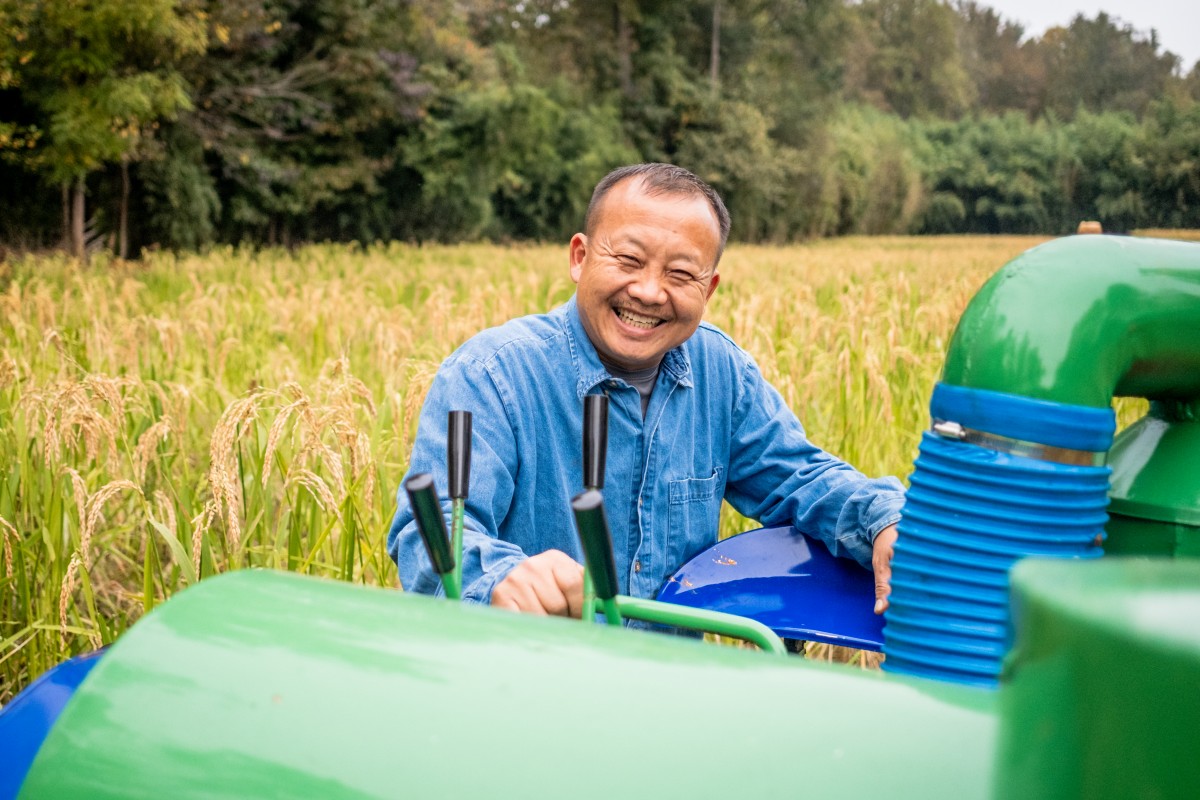I drove to the polls on Election Day not knowing what to expect.
I decided not to vote early, despite the many texts urging me to do so. I didn’t make this decision out of fear that my vote was in danger of not being counted, but because I’m not in a high-risk category for COVID-19. And because I savor the voting experience. There’s just something about waiting in line, getting a ballot and then walking out of the polling place, feeling the silent approval of those before me who fought for my right to do so. After so much loss this year, I wasn’t willing to give up that small joy.
I’d heard the President tell his supporters to “watch the polls” during the first presidential debate in September and knew there was some concern about how white supremacist and milita groups in particular might put that direction into action. Would there be anyone trying to intimidate voters at my precinct, the Round Island Baptist Church? I couldn’t imagine it, but this year has been an exercise in the unimaginable.
To my great relief, voting on Election Day was an unexceptional experience in Limestone County, about 40 miles west of Huntsville, Alabama. As I’d seen around town for several months, there were a lot of vehicles in the parking lot of my precinct with Trump stickers and there were just a few people inside with blue masks that simply said “Vote.”
However, just looking at my neighbors standing in line didn’t reveal much about their politics or attitudes, other than a solemn patience. The only thing that seemed apparent to me was that everyone I saw there was willing to follow the written law of the land and the understood law of this place we called home. Mind your rights — and your manners.
I voted a straight Democratic ticket, from president down to the local Board of Education. Alabama is as red as a state can be, and votes like mine don’t change the political landscape much, but it was an action that reflected the moral convictions I hold dear: racial and gender equality, health care reform and personal integrity, among others.
After the polls closed and the counting began, it became clear that this wasn’t going to be over quickly. I took a cautious look around Twitter and Facebook. I saw what I expected: fear, jubilation, anger, anxiety. As Election Day wore on, though, I saw something else. Messages of unity popped up here and there, from both sides of the political aisle. These messages spoke of friendships remaining unchanged, no matter how a person voted. They spoke of welcoming friends and family to the table, despite differences. The number of these messages grew and as they did, so did a particular type of response.
The responses I saw on social media were snarky and snide and professed that such unity was despicable. With a broad brush, they painted the people inside those unity messages with a condescending rhetoric that is all too familiar.
I caught my breath, and for just a moment, the hope that had been building in my chest fell crashing to the floor. All the years I’d spent reading, studying, writing, talking and working towards a certain future I hoped could exist fell to pieces around my feet. Some of these people responding harshly were asking for something in addition to my vote. They were asking me to give up on those around me who voted differently, to remove them from my life like a cancer. The message was clear: They aren’t human beings. They’re just votes for the other side. The enemy.
I voted for the Biden/Harris ticket. Almost everyone I love did not. I’ll keep voting blue, as long as it remains the choice my conscience demands. But I won’t give up on almost everyone I love in the process. They’re my family and neighbors. They’re the ones doing a lot of the good work around here. They show up at the schools as volunteers and stay all day, working to fill the gaps without getting paid. They organize food drives, clothes drives and free vaccination clinics for members of our community who are struggling financially. They work the concession stand at football games so kids can have band instruments, often after a long day at their regular jobs. They’re substitute teachers who drop food bags in backpacks on Friday afternoons. They don’t ask how you plan to cast your vote. They don’t care what color your skin is, or what you think about expanding Medicaid. They just do what they can to help.
Did the people I just spoke of vote for Trump? Almost all of them did. The word “almost” wouldn’t have existed in that sentence eight years ago. Progress is a process, and it looks different to a lot of people. Human beings are dynamic, complicated creatures, and you can’t know the fabric of their character by asking who they voted for in this election, or any election.
Don’t misunderstand me, I’m angry that Trump was elected in 2016. I think he and others like him are an enemy of this country who seek to tear down the progress that has been made towards equality in recent years, and there are those who support him who do so with deplorable motivations. I’ve been perplexed by the mysterious justifications people have made about why they vote for him. I get frustrated and confused. I get tired. I worry about a future where we all continue to dehumanize and oversimplify people who are different from us.
Listen, I get it. It’s hard to make sense of the world we find ourselves in right now. There’s the ongoing pandemic and the confusion created by the spread of misinformation and lack of leadership. There are things happening that are necessary and long overdue. Steps are being taken towards police reform. Monuments to Confederates are coming down. People are coming together in a big way to confront racial inequality. It’s a lot to take in, but I’m not giving up on my home or the people who live here. Most of them are kind, giving human beings that make the lives of many around them better. Most of them really are welcome at my table, no matter how they voted.
Here’s a harsh truth for all of us: If you think that you can determine a person’s value by how they cast their vote this year, you are part of the problem. People didn’t vote for Trump exclusively for the reasons you may hear on cable news, those that would make it easy to hate them.
Instead of pushing people away while we reflect on how enlightened we are, we should listen. We don’t need to listen so we can change our minds or compromise our values, we need to listen so we can learn what it is people see in their vote for a man who looks very little like the values they demonstrate through their own actions. We need to learn so we can understand. Only when we understand the truth can we change our reality, and that truth may not be as simple as you think.
To those who say they want people like me on their team, have a seat. There may be lively debate. You may get mad. You may even walk away, but please don’t stray too far. Stay where you can hear those whose words are different than yours.
Distance may make your own voice seem louder, but no one can hear it but you.
Jana Parris is a local historian, genealogist and folklike educator in North Alabama. She is a member of the Appalachian Advisors Network, a group of Appalachians working with members of the national and regional media to help tell a more complete story about their communities. Members of the media who want to connect with Jana can do so here.



